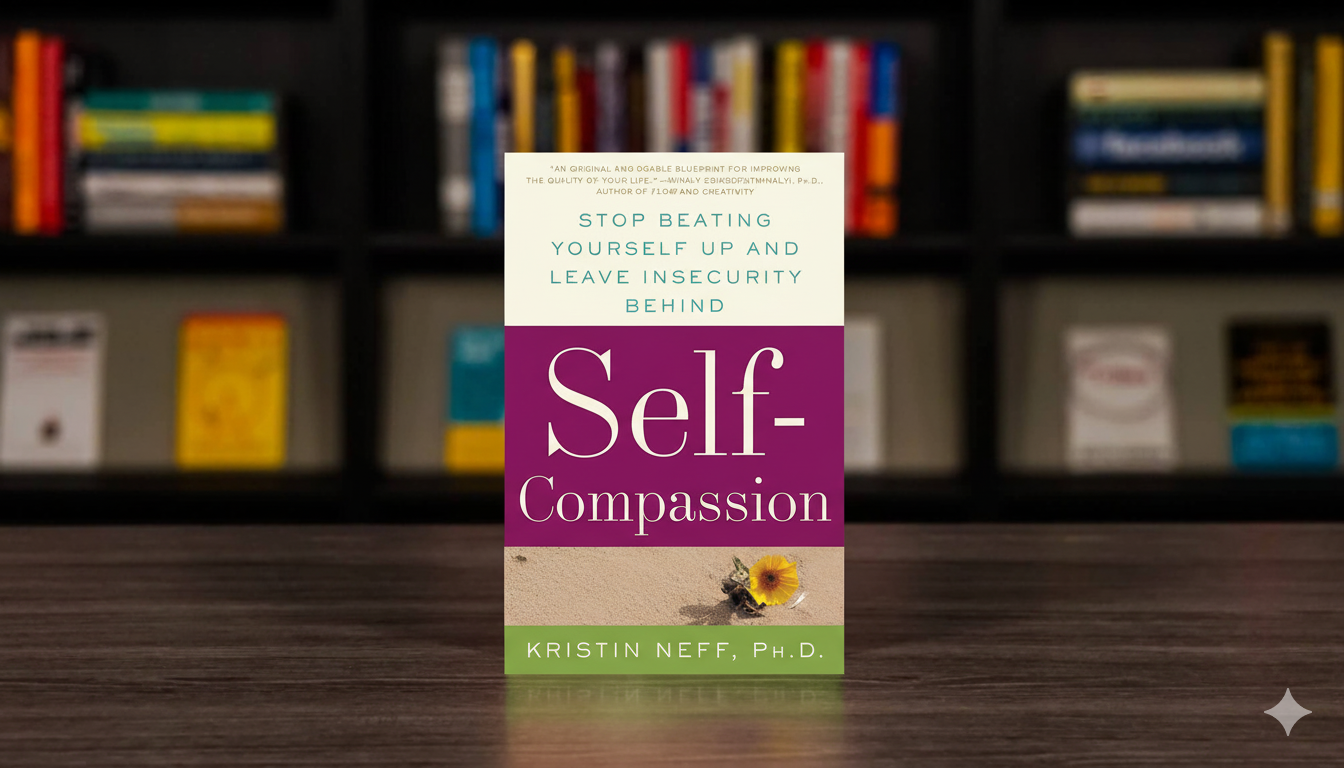What’s the first thing you do when you make a mistake? If you’re like most people, your inner critic probably jumps into action with a harsh monologue: "How could you be so stupid?" "You always mess things up." "You'll never get it right." We often believe this tough self-criticism is necessary for motivation and success.
But what if this approach is not only painful but also counterproductive? In her transformative book, Self-Compassion: The Proven Power of Being Kind to Yourself, Dr. Kristin Neff offers a powerful and scientifically-backed alternative: treating yourself with the same kindness, care, and concern you would show a good friend.
What Self-Compassion Is (and Isn't)
Self-compassion is not about self-pity, self-indulgence, or making excuses. It’s a powerful mindset that allows us to navigate our failures and imperfections with grace and resilience. Dr. Neff breaks it down into three core components:
- Self-Kindness vs. Self-Judgment: This is the practice of being warm and understanding toward ourselves when we suffer, fail, or feel inadequate, rather than ignoring our pain or lashing out with criticism. It’s about actively comforting yourself. Instead of "You're so lazy," it’s "It's okay, you're having a hard time right now. How can I support you?"
- Common Humanity vs. Isolation: This involves recognizing that suffering and personal inadequacy are part of the shared human experience. Everyone makes mistakes. Everyone feels pain. Instead of feeling isolated by your imperfections ("What's wrong with me?"), you connect with others through the reality of imperfection ("We're all in this together.").
- Mindfulness vs. Over-Identification: Mindfulness is the practice of observing our negative thoughts and emotions with openness and clarity, without suppressing or exaggerating them. It allows us to hold our pain in balanced awareness. We acknowledge, "Yes, this hurts," without getting swept away by the drama of it.
Why Self-Compassion is Better Than Self-Esteem
For decades, we’ve been told that high self-esteem is the key to happiness. But self-esteem can be a trap. It's often based on being better than others, on external validation, and on success. When we fail—which is inevitable—our self-esteem plummets, leaving us vulnerable.
Self-compassion, on the other hand, is a stable and unconditional source of self-worth. It’s there for you precisely when you need it most: when you fail. It doesn't ask, "Am I good enough?" It asks, "What do I need right now?" Research shows that people who practice self-compassion are more resilient, less anxious and depressed, and are actually more motivated to improve themselves after a setback.
A Kinder Path to Motivation
The fear that self-compassion will lead to laziness is a myth. Think about it: If a child comes home with a bad grade, what is more effective in the long run?
- Criticism: "You're lazy and you'll never amount to anything!" (This leads to fear, anxiety, and a reluctance to try again).
- Compassion: "Hey, I see you're disappointed. This is tough, but I believe in you. Let's look at what happened and figure out how we can do better next time." (This builds trust, safety, and a desire to learn).
Self-compassion works the same way. It creates the supportive emotional environment you need to learn from your mistakes and find the courage to try again.
So next time your inner critic starts its tirade, try a different approach. Pause, acknowledge your struggle, and offer yourself a moment of kindness. You might be surprised at how much more powerful a compassionate inner ally is than a critical inner enemy.
